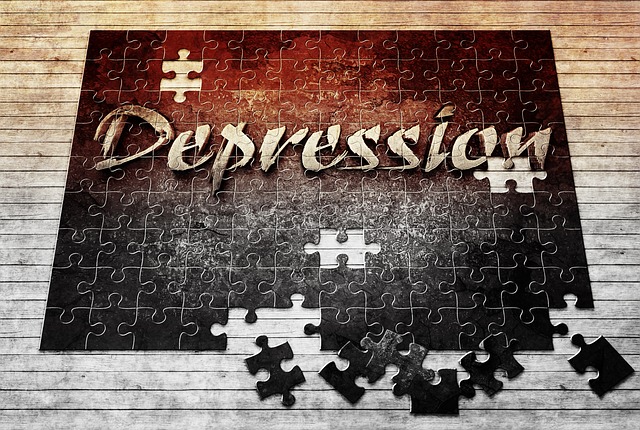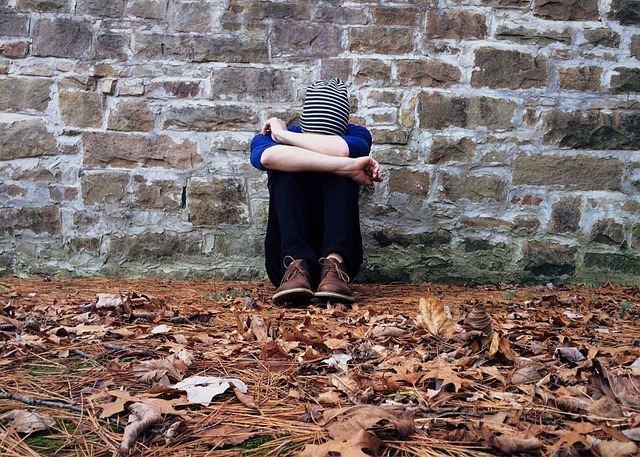What Is Depression?
Millions of individuals worldwide are impacted by the complicated and common mental health disorder known as Depression. Despite its widespread occurrence, there is still a lot that is unknown about depression and how it affects people's lives.
Definition of Depression
Depression is a mental health condition characterized by continuous sorrow, despair, and a loss of interest or pleasure in activities. It affects a person's everyday functioning and general well-being in ways that go beyond short-term sadness or low mood.
Prevalence of Depression
Depression is a global concern, affecting people of all ages, genders, and backgrounds. According to the World Health Organization (WHO), over 264 million people worldwide suffer from depression. Recognizing depression as a public health concern is crucial to addressing its impact on individuals, families, and communities.
Understanding the Causes of Depression
A. Biological Factors
1. Genetic Predisposition and Family History
◾ According to research, genetics may have a role in depression. People with a family history of depression may be predisposed to the disorder. Certain genetic variations may influence how individuals respond to stress and regulate mood.
2. Neurochemical Imbalances and Hormonal Factors
◾ Neurotransmitter imbalances, such as serotonin, dopamine, and norepinephrine, can lead to depression. Hormonal changes, such as those experienced during puberty, pregnancy, or menopause, may also influence mood and increase the risk of depression.
B. Psychological Factors
1. Early Life Experiences and Trauma
◾ Adverse childhood experiences, such as abuse, neglect, or loss, can predispose to depression later in life. Traumatic events, including accidents or witnessing violence, can trigger depressive episodes.
2. Negative Thinking Patterns and Cognitive Distortions -
◾ Individuals with depression often exhibit negative thinking patterns, such as persistent self-criticism, pessimism, and distorted perceptions of oneself and the world. Cognitive distortions, such as overgeneralization or catastrophic thinking, contribute to the maintenance of depressive symptoms.
C. Environmental Factors
1. Chronic Stress and Life Events
◾ Prolonged exposure to stressors like financial difficulties, relationship problems, or work-related stress can contribute to the development of depression. Major life events such as loss of a loved one, divorce, or job loss can trigger depressive episodes.
2. Social Isolation and Lack of Support
◾ Social isolation, loneliness, and a lack of meaningful social connections can increase the risk of depression. Limited support systems or a lack of access to resources may exacerbate depressive symptoms.
Read More - 10 Habits That Help You Overcome Depression
Recognizing the Symptoms of Depression
A. Emotional Symptoms
1. Persistent Sadness or Feelings of Emptiness
◾ A hallmark symptom of depression is a pervasive sense of sadness, emptiness, or a depressed mood that persists for an extended period.
2. Loss of enjoyment or interest in Activities
◾ Depressed people frequently lose interest in activities they formerly loved. Hobbies, socializing, and even personal relationships may no longer be appealing.
B. Cognitive Symptoms
1. Difficulty Concentrating or Making Decisions
◾ Depression can impair cognitive function, leading to difficulties in concentration, memory, and decision-making.
2. Negative Thoughts and Self-Criticism
◾ Depressed individuals often experience negative thoughts about themselves, their abilities, and the future. Self-criticism and feelings of worthlessness are common.
C. Physical Symptoms
1. Changes in Appetite and Weight
◾ Depression can manifest as significant changes in appetite, leading to either weight loss or weight gain. These changes may occur even in the absence of intentional dietary changes.
2. Sleep Disturbances and Fatigue
◾ Insomnia or hypersomnia (extreme drowsiness) are typical signs of depression. Individuals may have difficulties getting asleep, remaining asleep, or waking up early. Lack of sleep can result in chronic weariness and low energy levels.
D. Behavioral Symptoms
1. Withdrawal from Social Activities
◾ Individuals with depression often withdraw from social interactions, preferring solitude and isolation. They may avoid gatherings, events, or activities they previously enjoyed.
2. Increased Irritability or Agitation
Depression can manifest as heightened irritability, restlessness, or an increased propensity for anger or agitation.
Seeking Help for Depression
A. Importance of Professional Support
1. Role of Mental Health Professionals
◾ Mental health specialists, such as psychiatrists, psychologists, and therapists, play an important role in identifying and treating depression.
◾ They provide evidence-based therapies, including cognitive-behavioral therapy (CBT), interpersonal therapy (IPT), and medication management when necessary.
2. Types of Therapy and Treatment Options Available
◾ Therapy approaches like CBT help individuals identify and challenge negative thinking patterns and develop healthier coping mechanisms.
◾ Medication, such as antidepressants, may be prescribed by a healthcare professional to help regulate neurotransmitter imbalances.
B. Self-Help Strategies
1. Establishing a Support Network : Building a supportive network of family, friends, or support groups can provide a valuable source of understanding, encouragement, and empathy.
2. Engaging in Regular Physical Exercise : Exercise has been shown to boost mood by increasing endorphin levels and reducing stress hormones. Engaging in activities like walking, jogging, or yoga can have a positive impact on mental well-being.
3. Practicing Stress Management Techniques : Adopting stress reduction techniques such as deep breathing exercises, mindfulness meditation, or engaging in hobbies and activities that promote relaxation can help manage depressive symptoms.
Coping Strategies for Individuals with Depression
A. Lifestyle Changes
1. Prioritizing Self-Care and Setting Realistic Goals
◾ Engaging in self-care activities, such as getting adequate sleep, eating a balanced diet, and engaging in enjoyable activities, can support overall well-being.
◾ Setting realistic goals and breaking them down into smaller, achievable steps can help regain a sense of accomplishment and motivation.
2. Adopting a Balanced Diet and Sleep Routine
◾ Consuming a nutritious diet, rich in fruits, vegetables, whole grains, and lean proteins, can positively impact mental health.
◾ Establishing a consistent sleep routine, including going to bed and waking up at regular times, can improve sleep quality and overall mood.
3. Incorporating Relaxation Techniques into Daily Life
◾ Practicing relaxation techniques like deep breathing, progressive muscle relaxation, or guided imagery can help reduce stress levels and promote a sense of calm.
B. Cognitive-Behavioral Techniques
1. Challenging Negative Thoughts and Beliefs :
◾ Identifying and challenging negative thoughts and replacing them with more realistic and positive alternatives can help change the mindset and reduce depressive symptoms.
◾ Keeping a thought journal or seeking therapy can assist in recognizing and reframing negative thinking patterns.
2. Developing Coping Mechanisms and Problem-Solving Skills
◾ Learning effective coping strategies, such as problem-solving and stress management techniques, can empower individuals to navigate challenging situations and reduce the impact of stress on their mental well-being.
C. Medication and Alternative Treatments
1. Understanding the Role of Antidepressant Medication
◾ Antidepressant medications, prescribed by a healthcare professional, can help regulate neurotransmitter imbalances and alleviate depressive symptoms.
◾ It is important to consult with a healthcare provider to determine the appropriate medication and dosage based on individual needs.
2. Exploring Complementary and Alternative Therapies
◾ Some individuals find relief from depression symptoms through complementary and alternative therapies like acupuncture, herbal supplements, or yoga. It is essential to consult with a healthcare professional before incorporating these treatments.
Supporting Someone with Depression
A. Empathy and Active Listening
1. Creating a Safe and Non-judgmental Space
◾ Individuals suffering from depression can communicate their thoughts and worries without fear of being judged or rejected if a sympathetic and nonjudgmental environment is provided. Validating their experiences and emotions can help them feel understood and supported.
2. Offering Support and Validation
◾ Simply listening without judgment and offering support can be incredibly valuable. Acknowledge their struggles and offer encouragement and empathy.
Read More - How to Prevent Parkinson's Disease
B. Educating Yourself
1. Learning About Depression and Its Effects
◾ Educating yourself about depression can help you understand its complexities, including symptoms, treatment options, and potential challenges faced by individuals experiencing it.
◾ Reliable sources, such as reputable websites, books, or mental health organizations, can provide valuable information.
2. Understanding the Importance of Boundaries and Self-Care
◾ Supporting someone with depression can be emotionally demanding. It is essential to set boundaries, prioritize self-care, and seek your own support to avoid burnout.
C. Encouraging Professional Help
1. Providing Resources and Information on Treatment Options
◾ Provide information about mental health services, therapeutic choices, and support groups in order to encourage the individual suffering from depression to seek professional help.
◾ Share helpline numbers or websites where they can access more information and support.
2. Assisting in Finding a Suitable Mental Health Professional
◾ Assisting in the process of finding a mental health professional who specializes in depression can alleviate some of the stress and uncertainty for the person seeking help.
Read More - What is Neurodegenerative Diseases
Overcoming Stigma and Building Awareness
A. Challenging Misconceptions
1. Dispelling Myths about Depression
◾ Education and awareness efforts can help debunk common myths and misconceptions surrounding depression, reducing stigma and promoting understanding.
2. Promoting Understanding and Empathy
◾ Encourage open discussions about mental health to foster a more empathetic and supportive society. Emphasize that depression is a medical condition and not a personal weakness.
B. Encouraging Open Dialogue
1. Sharing Personal Experiences and Stories
◾ Personal stories can help break down barriers and provide comfort and inspiration to others facing depression. Sharing experiences openly reduces stigma and promotes empathy.
2. Supporting Mental Health Initiatives and Advocacy
◾ Get involved in mental health initiatives, support organizations, or participate in advocacy efforts to raise awareness, promote research, and enhance access to mental health resources.
In Conclusion, Depression is a multifaceted mental health condition that can significantly impact individuals' lives. By increasing our understanding of depression, recognizing its causes and symptoms, and adopting effective coping strategies, we can create a more supportive environment for those affected. Remember, seeking help and support is not a sign of weakness but a courageous step towards recovery. Together, we can combat stigma and promote mental well-being for everyone.






No comments:
Post a Comment